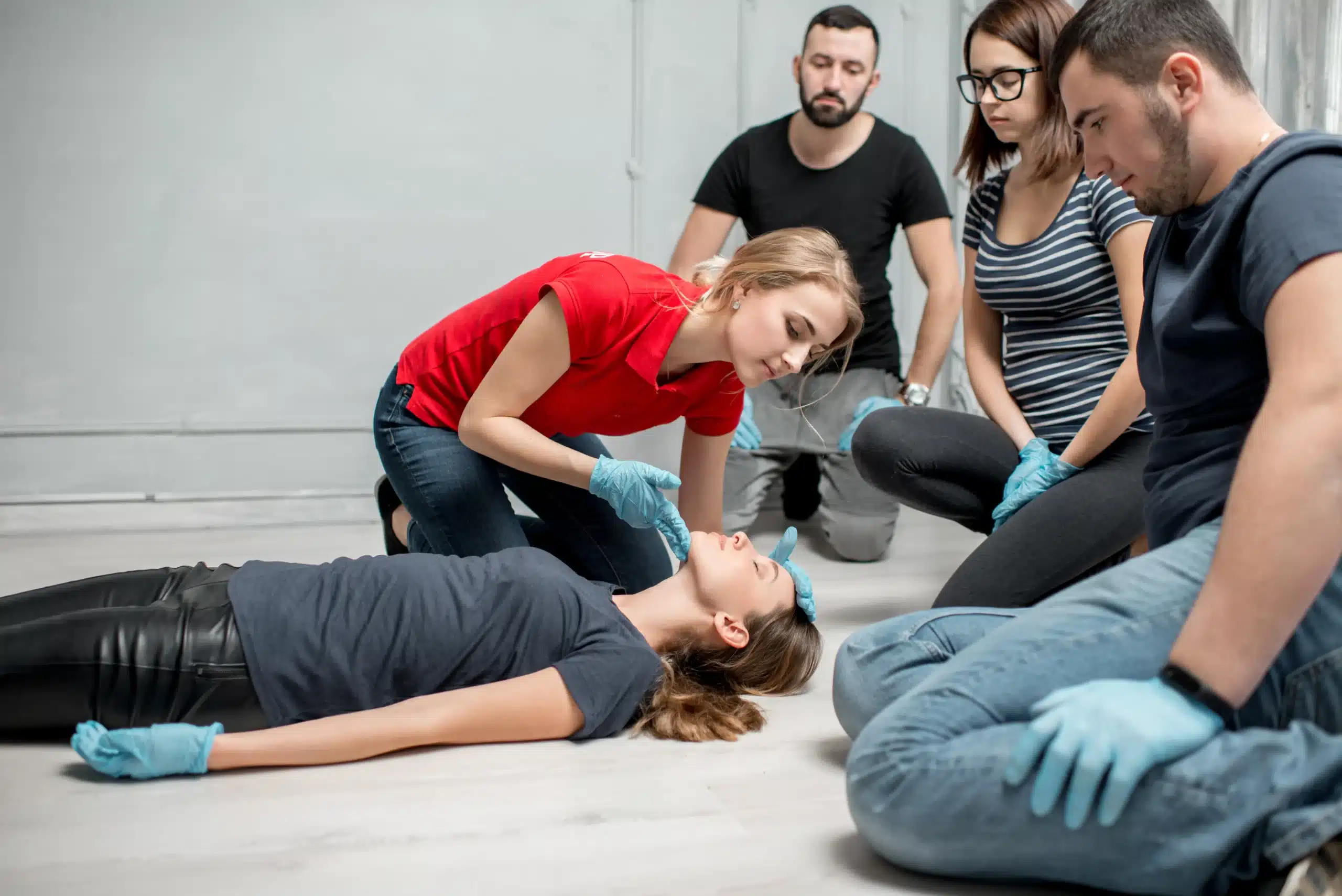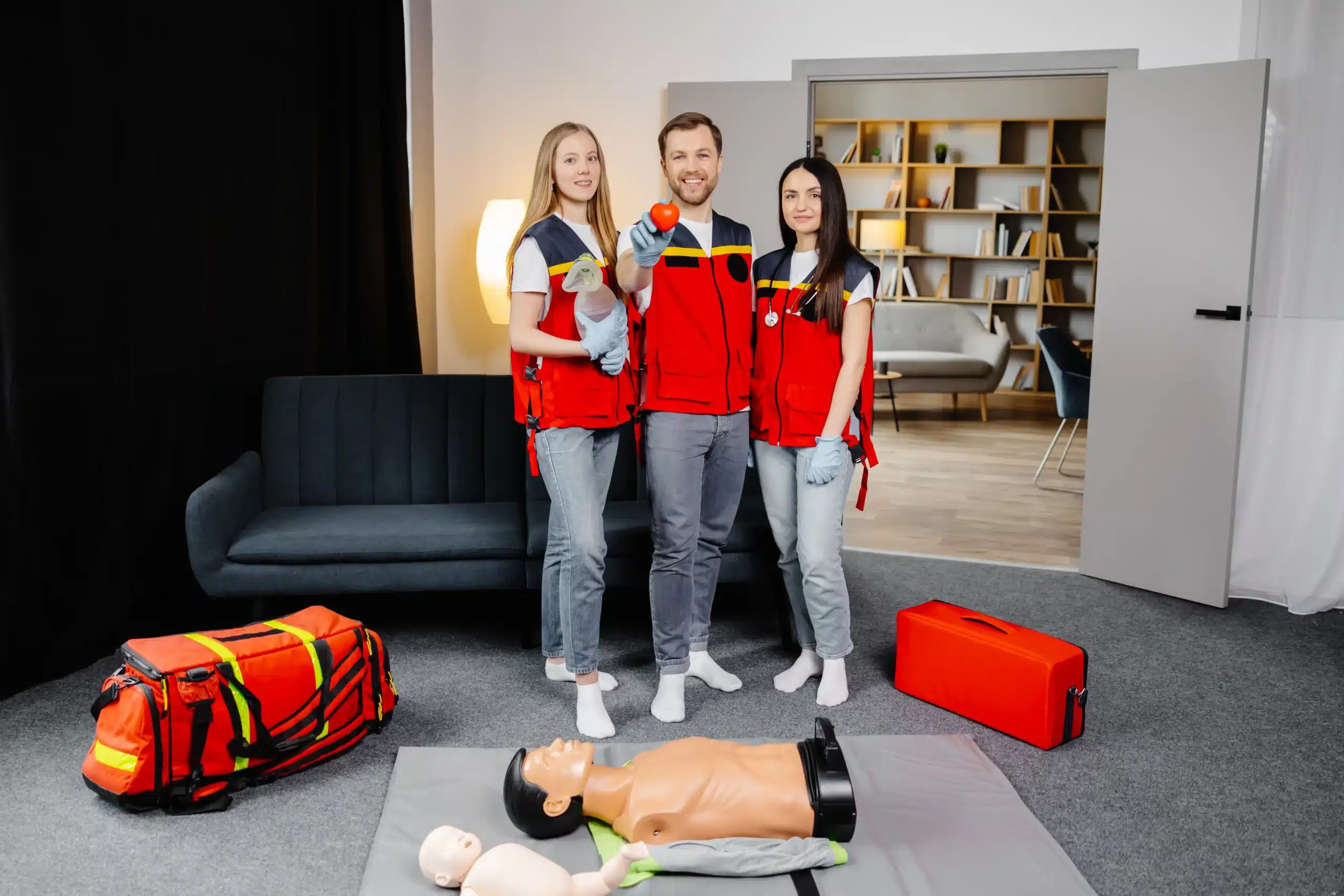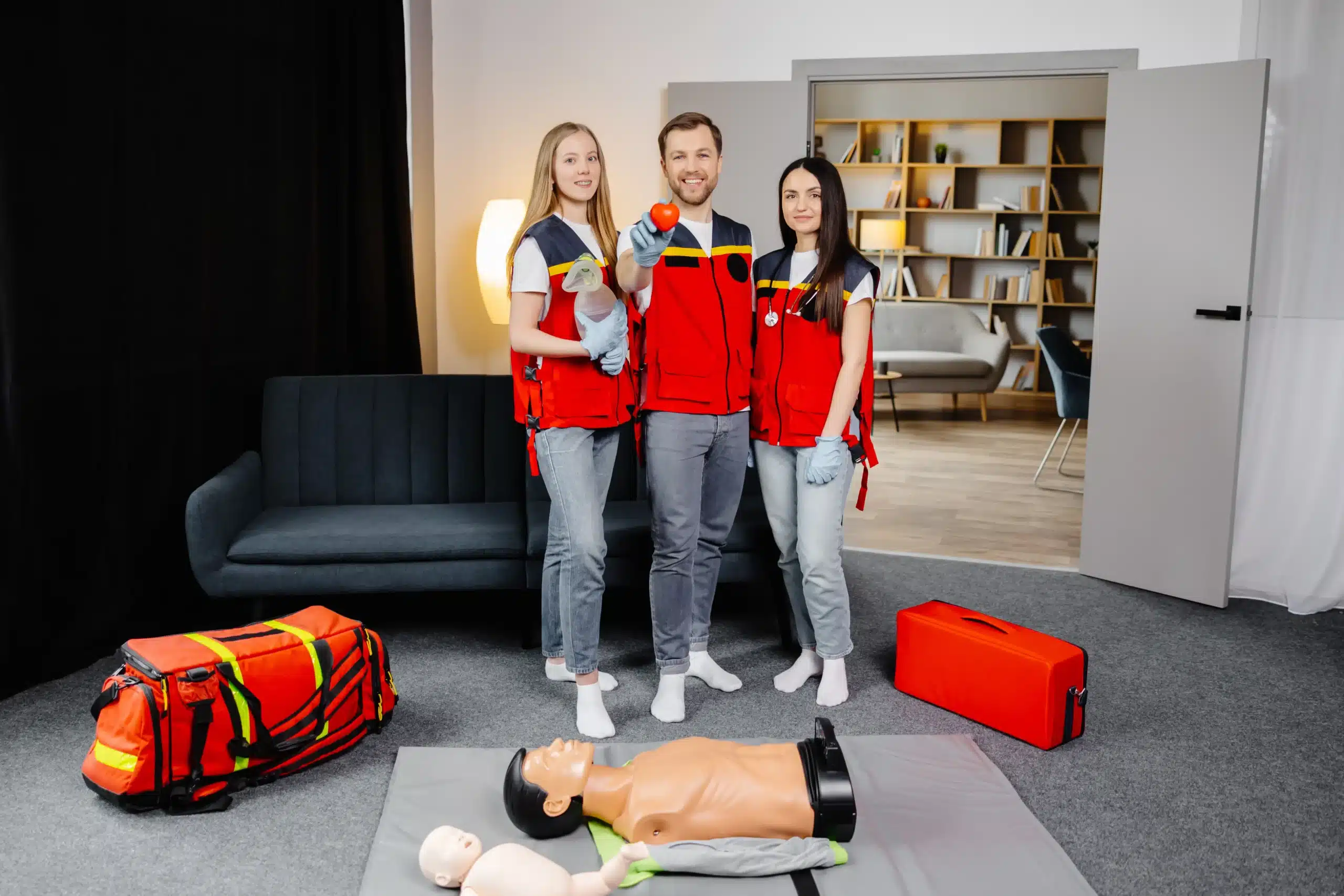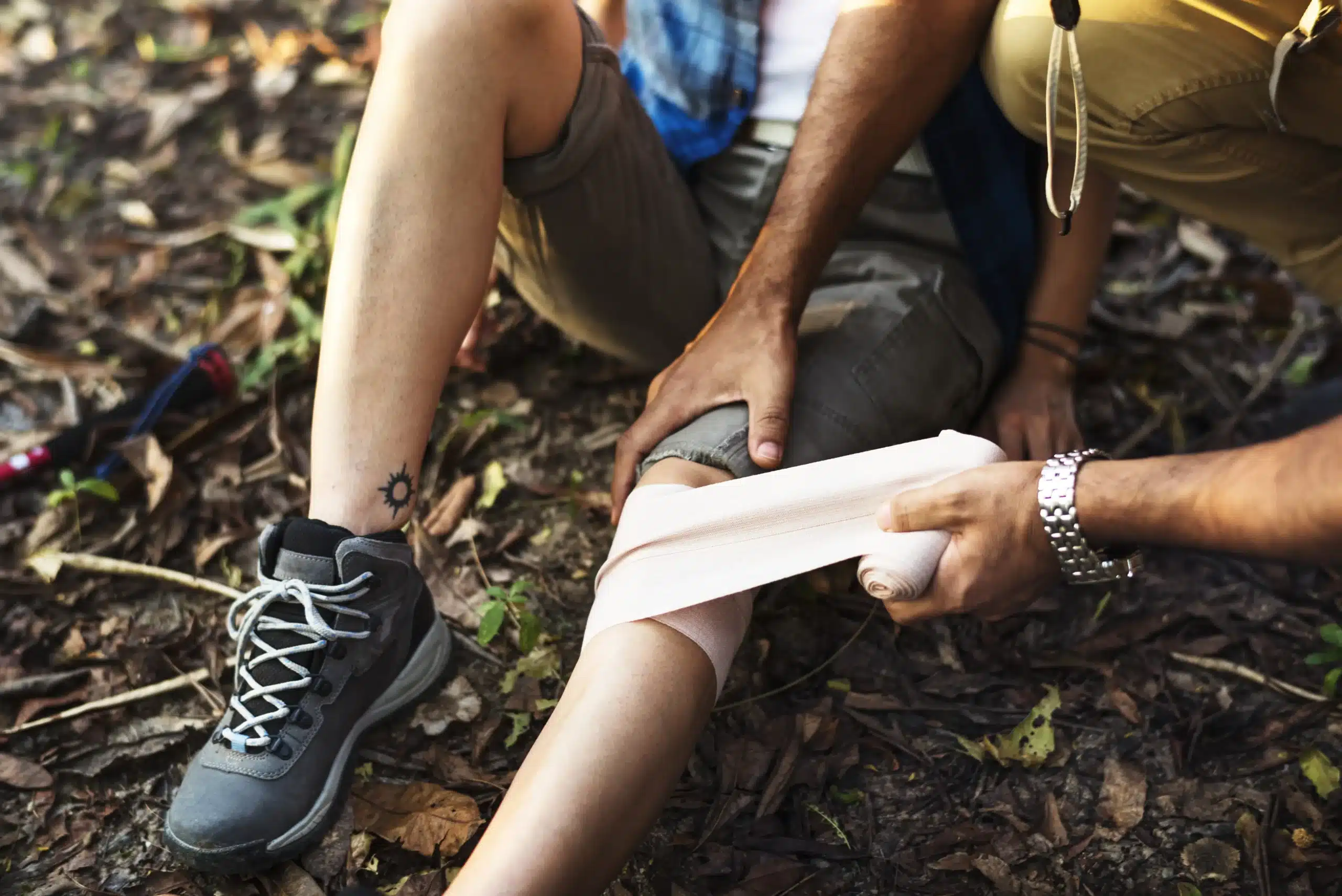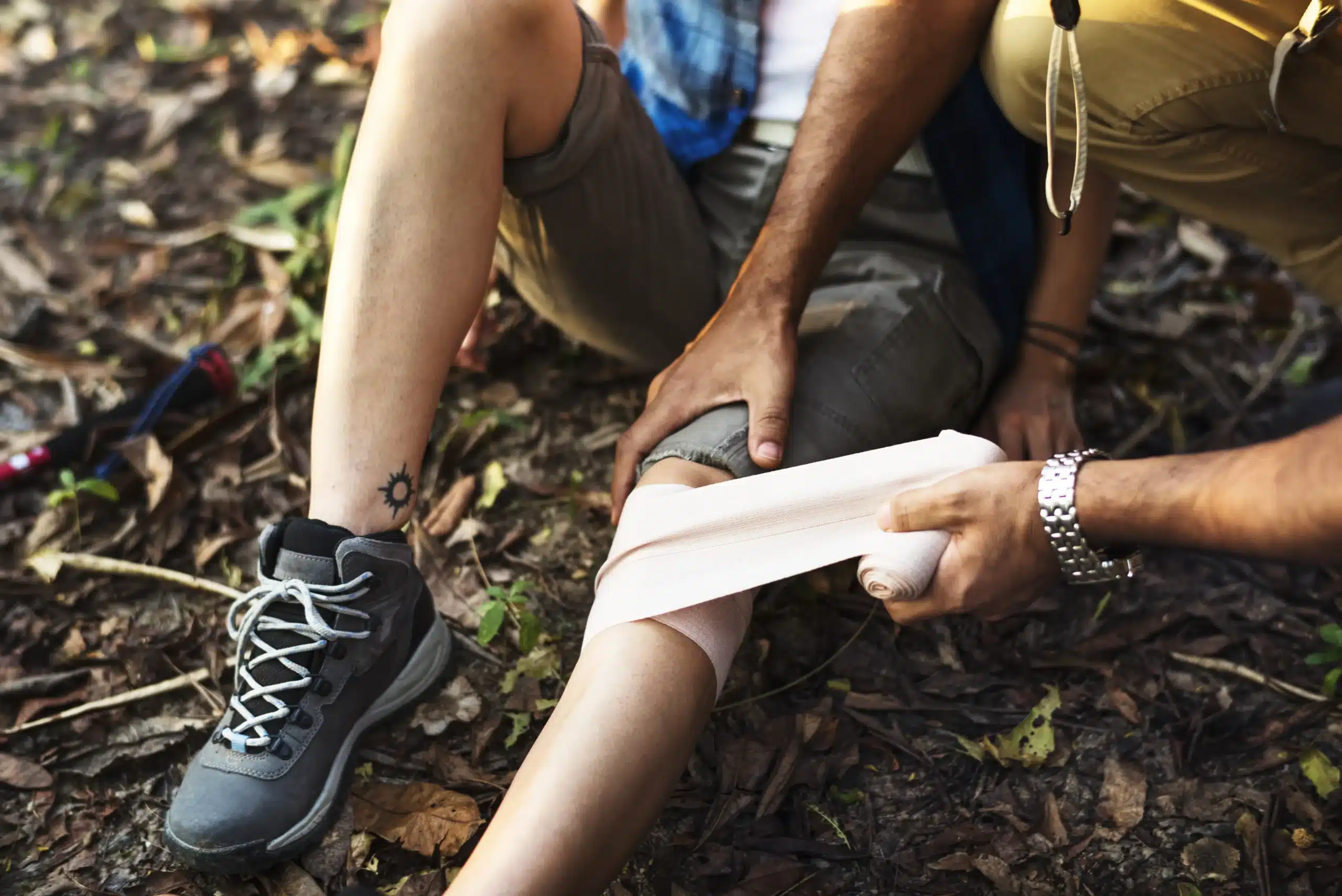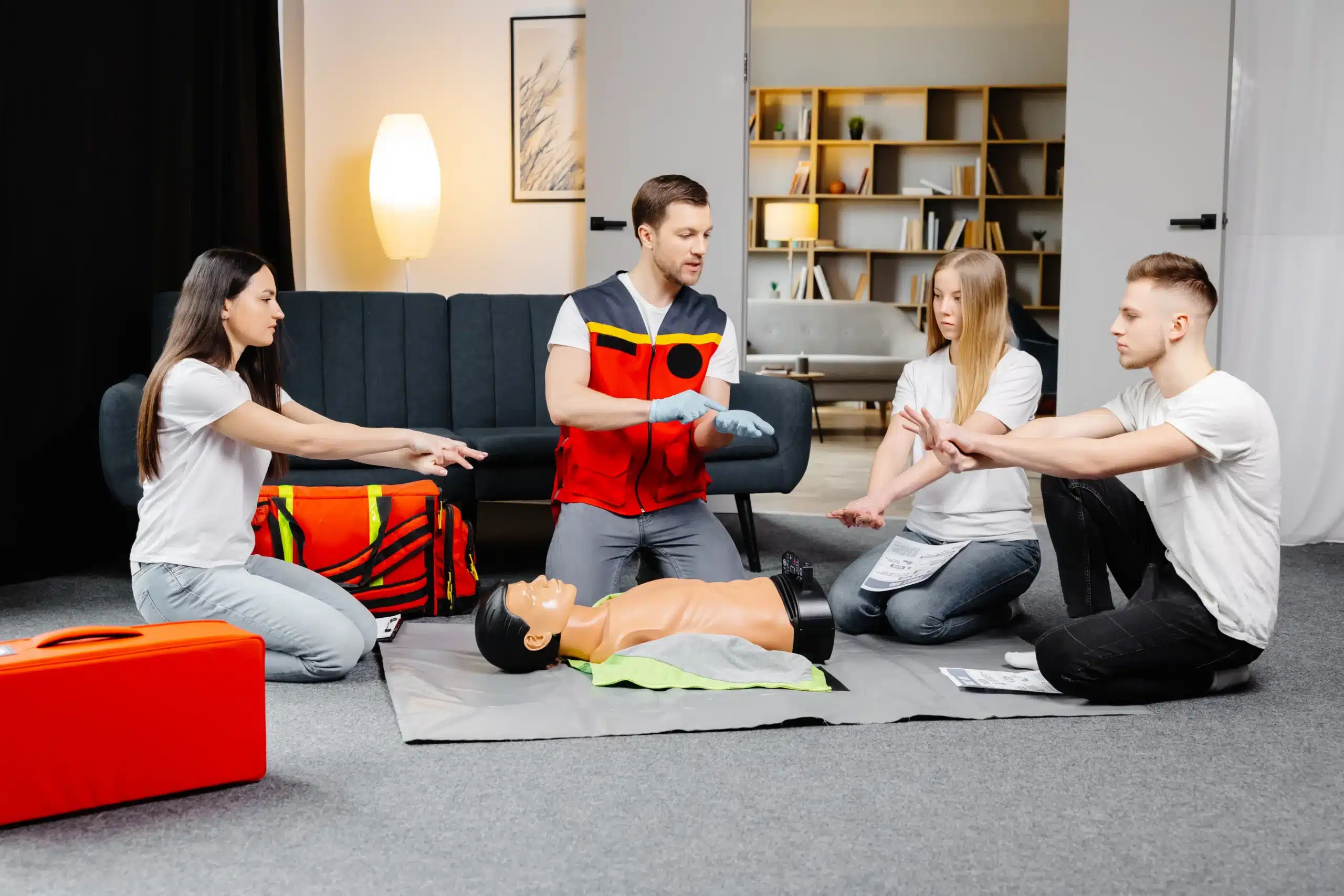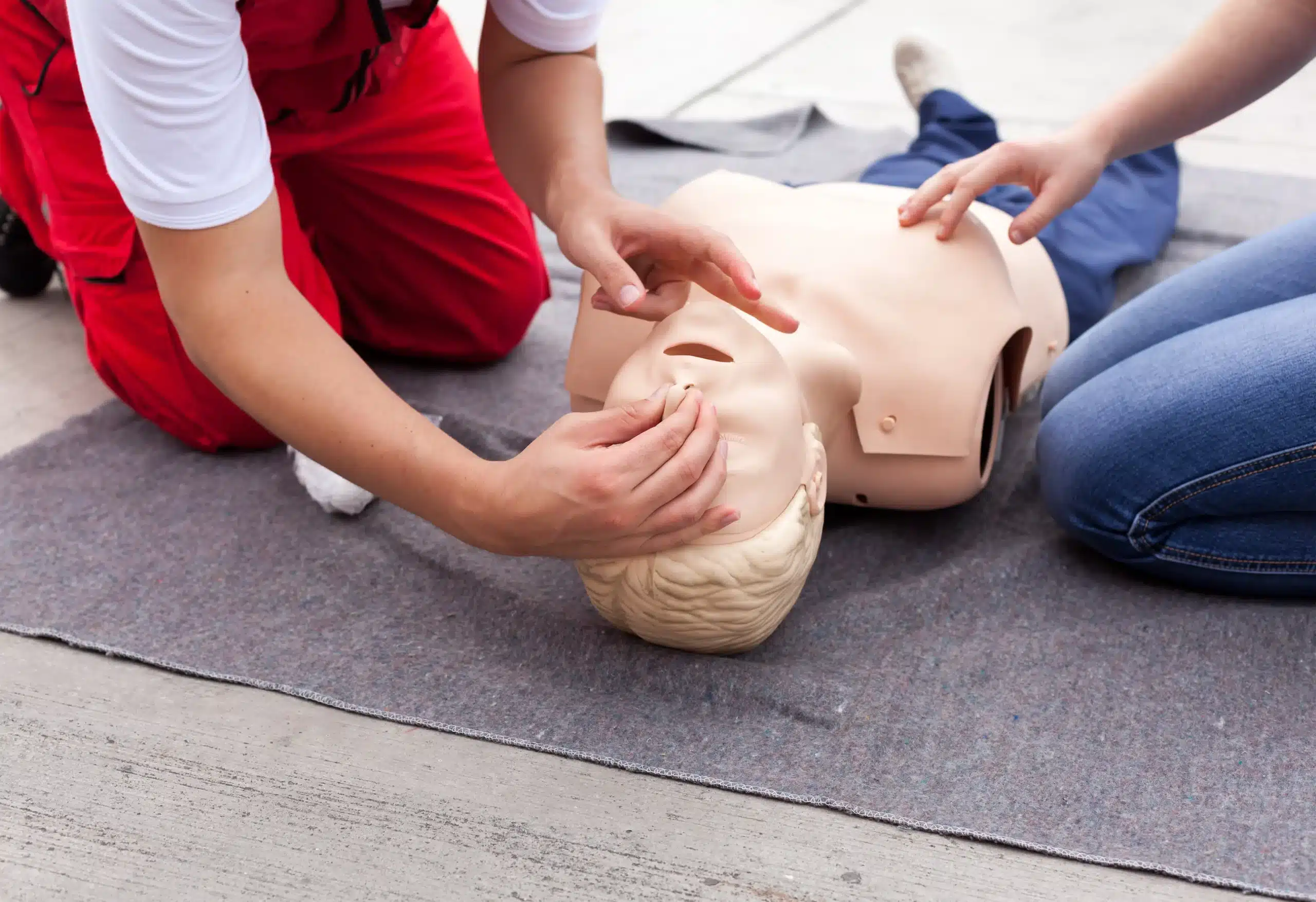Emergencies can happen anytime, anywhere. Are you ready to respond? Getting your CPR certification in American Canyon is the first step towards being prepared for life’s unexpected moments. This guide will walk you through the process of obtaining CPR certification in American Canyon, from understanding the different types of certifications available to finding the right training provider for your needs. We’ll cover everything from the basics of CPR to more advanced life support techniques, discuss the costs and time commitment involved, and explore the many benefits of becoming certified. Whether you’re a healthcare professional, a community member, or simply someone who wants to make a difference, this guide will empower you to find the perfect CPR certification in American Canyon.
Key Takeaways
- CPR certification empowers you to save lives: From basic life support to advanced cardiac care, CPR training equips you with the skills to respond effectively in emergencies. Explore various levels of certification, including BLS, ACLS, and PALS, to find the right fit for your needs.
- Find the ideal CPR class and provider: Consider your learning style, schedule, and budget when selecting a CPR course and provider. Explore options like in-person training, online certification, and blended learning. Compare providers, check reviews, and inquire about group discounts.
- Stay prepared by keeping your certification current: CPR certifications typically expire after two years. Renew your certification through a recognized training center to maintain your skills and confidence. Regularly refreshing your knowledge ensures you’re always ready to assist in a medical emergency.
What is CPR Certification in American Canyon?
CPR certification shows you know how to perform cardiopulmonary resuscitation and other life-saving techniques. It confirms you’ve completed a course aligned with guidelines from organizations like the American Heart Association (AHA). Several organizations in American Canyon offer these CPR certification courses, giving residents the skills to handle emergencies. This training empowers you to make a real difference when it matters most. The AHA actively promotes CPR training and certification in American Canyon to create a more prepared community. Learn more about their local programs and involvement. Whether you’re a healthcare professional or simply want to be prepared, CPR certification offers valuable skills.
CPR Certification Classes: What’s Available?
Choosing the right CPR certification course depends on your specific needs and career goals. Here’s a breakdown of the different CPR classes available in American Canyon:
Basic Life Support (BLS)
BLS certification equips you with fundamental life-saving skills. You’ll learn CPR for adults, children, and infants, how to use an automated external defibrillator (AED), and how to recognize and respond to life-threatening emergencies like heart attacks and strokes. This BLS certification covers essential techniques for providing high-quality CPR and is a prerequisite for many healthcare and other professional roles. It emphasizes early recognition and a rapid response to ensure the best possible outcomes.
Advanced Cardiovascular Life Support (ACLS)
ACLS training is designed for healthcare professionals who manage cardiopulmonary arrest and other cardiovascular emergencies. This advanced course builds upon the foundation of BLS and covers complex algorithms for treating respiratory and cardiac arrest, stroke, and other acute coronary syndromes. You’ll gain expertise in areas like team dynamics, effective communication, airway management, and pharmacology in emergency situations.
Pediatric Advanced Life Support (PALS)
PALS certification focuses on the specialized skills needed to respond to emergencies involving infants and children. This course provides healthcare providers with the knowledge and practical training to manage pediatric respiratory emergencies, cardiac arrest, and shock. Like ACLS, PALS emphasizes team-based resuscitation and a rapid response to improve outcomes for young patients. Safety Training Seminars offers PALS instruction in American Canyon, ensuring you learn from qualified professionals.
First Aid and CPR/AED
Combining First Aid and CPR/AED training provides a well-rounded skill set for responding to various medical emergencies. You’ll learn how to manage injuries, control bleeding, treat burns, and handle other common first aid scenarios. The CPR/AED component ensures you can also respond effectively to cardiac arrest and breathing emergencies. This combined approach prepares you to handle a broader range of situations and provide immediate assistance until professional medical help arrives.
CPR Certification: Costs & Value
Getting CPR certified is an investment in your skills and the well-being of your community. Let’s break down the costs associated with CPR certification in American Canyon and explore the value it brings.
Course Pricing
Understanding course pricing is the first step. While the actual training is often free, the certification itself comes with a fee. You can expect to pay around $25 for combined CPR/AED/First Aid certification. BLS certification, a more advanced course for healthcare providers, typically costs around $35. Keep in mind that these prices can vary, so it’s always a good idea to check with the specific provider. For more pricing details, review CPR class costs in American Canyon.
Compare Providers
American Canyon has several CPR certification providers, each with its own strengths. Safety Training Seminars offers a wide range of American Heart Association courses, including BLS, ACLS, and PALS. They provide training at your location or at one of their Northern California offices. For those seeking BLS renewal, Vallejo CPR Classes, affiliated with Safety Training Seminars, is another option. Research different providers to find the best fit for your needs and budget.
Discounts & Group Rates
If you’re training with a group, look for discounts. Many providers offer reduced rates for group certifications, making it a cost-effective way to train your team or organization. Safety Training Seminars is known for its competitive pricing on AHA courses, making them a solid choice for group training. Contact providers directly to inquire about group discounts and tailor a training solution that works for you.
CPR Certification: How Long Does it Last?
Knowing the duration of your CPR certification is key to ensuring you’re always prepared for an emergency. Let’s break down the typical timeframe and what to expect.
Certification Period
CPR certification is typically valid for two years. Your card, issued upon successful completion of the course, clearly indicates the expiration date. This two-year timeframe ensures your skills and knowledge remain sharp and effective. Staying current with the latest guidelines and techniques is crucial for providing effective assistance in emergencies.
What Your Certification Includes
Your CPR certification journey involves comprehensive training covering essential life-saving skills. You’ll participate in engaging lessons, often supplemented by skill training videos, and complete a final exam. Most courses require a score of 80% or higher to pass. Retakes are usually available to help you achieve proficiency. For example, a BLS certification teaches CPR, AED use, and how to recognize and respond to medical emergencies like heart attacks and strokes. This comprehensive approach prepares you to handle various situations confidently.
Renew Your Certification
Keeping your certification current is easy. Before your card expires, register for a renewal course through an approved training center like Safety Training Seminars, which offers various BLS certification courses throughout Northern California. This ensures your skills are always up-to-date and you remain prepared to confidently handle emergency situations. Regularly refreshing your training reinforces best practices and keeps you informed of any updates to CPR guidelines.
Choose the Right CPR Training Format
Finding the right CPR training format depends on your learning style, schedule, and specific requirements. Let’s break down the options so you can make the best choice.
In-Person Training
In-person CPR training offers hands-on learning with direct guidance from a certified instructor. This format allows for immediate feedback, helping you develop proper skills and confidence. If you learn best in a traditional classroom setting and value personal interaction, in-person training is an excellent option. Safety Training Seminars offers various American Heart Association (AHA) certified courses in American Canyon and across Northern California, with classes available daily (except Christmas and New Year’s Day) at 45 convenient locations. They also provide on-site training at your business.
Online Certification
Online CPR certification offers flexibility and affordability, allowing you to learn at your own pace and on your own schedule. This format is ideal for busy schedules or limited access to in-person classes. However, online training typically lacks hands-on practice, essential for mastering CPR. Before enrolling in an online CPR course, check with your employer or licensing organization to ensure it meets their requirements.
Blended Learning
Blended learning combines online learning with hands-on practice. You complete the cognitive portion online at your own pace, then attend an in-person skills session with an instructor to practice and demonstrate your skills. Programs like the HeartCode BLS course offer this blended format, a popular choice for busy professionals who need flexibility but also want hands-on training.
What Happens During CPR Certification?
Getting CPR certified involves a blend of learning and hands-on practice. Here’s what you can expect during your CPR certification class:
Course Content & Materials
Your CPR class will cover essential life-saving skills and techniques. Expect to learn the core concepts of CPR, including chest compressions, rescue breaths, and how to recognize the signs of a cardiac arrest. Depending on the course you choose—like Basic Life Support (BLS), Advanced Cardiovascular Life Support (ACLS), or Pediatric Advanced Life Support (PALS)—the curriculum will cover more specialized techniques and protocols. Many courses, such as those offered by Safety Training Seminars, align with American Heart Association (AHA) guidelines, ensuring you receive up-to-date training. You’ll receive course materials that often include manuals, videos, and quick reference guides.
Hands-On Practice
CPR certification isn’t just about studying—it’s about developing the muscle memory and confidence to perform CPR effectively. You’ll practice CPR techniques on mannequins, allowing you to get comfortable with chest compressions, rescue breaths, and proper hand placement. This hands-on training is crucial for mastering the skills and building confidence. Instructors will provide guidance and feedback.
Assessments
To earn your CPR certification, you’ll demonstrate your knowledge and skills through assessments. These typically include a written exam covering the course content and a practical skills test where you perform CPR on a mannequin. Don’t worry about the exam; instructors are there to support you. Many programs allow you to retake the exam if needed.
Skills You’ll Learn
CPR certification equips you with the skills to respond to various medical emergencies. You’ll learn how to perform CPR for adults, children, and infants, use an automated external defibrillator (AED), and recognize and respond to common medical emergencies like choking, heart attacks, and strokes. These essential skills can make a real difference.
Enroll in CPR Certification: What You Need
So, you’re ready to learn CPR? Great! This section covers the essentials to get you started. Knowing the requirements beforehand makes signing up for a class that much easier.
Age Requirements
Most CPR certification courses, like the BLS renewal course, have age requirements. Many training centers prefer students to be at least 16 years old. This guideline ensures participants possess the maturity and comprehension needed to learn these life-saving skills effectively. If you’re unsure about a specific course’s age requirements, it’s always best to contact the training center directly. For example, you can check with your local provider like Safety Training Seminars for their specific age guidelines.
Basic Health Knowledge
While you don’t need to be a medical expert, having a basic understanding of health and emergency response can be helpful. The BLS certification course covers essential life-saving skills, including CPR techniques, AED usage, and recognizing medical emergencies like heart attacks and strokes. Familiarizing yourself with these concepts beforehand can make the learning process smoother. Check out resources like the American Heart Association website for more information.
Registration
Registering for a CPR certification course is straightforward. Approved training centers like Safety Training Seminars offer various options, including American Heart Association BLS, ACLS, PALS, and CPR certification classes. You can often choose between attending classes in person or arranging for instructors to come to your location. This flexibility allows you to find a course that fits your schedule and preferences. Visit Safety Training Seminars to explore available courses and register.
Why Get CPR Certified?
Be Prepared
CPR certification equips you with the skills to respond to medical emergencies. Learning CPR, using an AED, and recognizing the signs of a heart attack or stroke empowers you to provide immediate care while waiting for professional help. This can make a critical difference in someone’s survival. Having these skills means you’re prepared to act quickly and confidently in a crisis, potentially saving a life. It’s about being ready to help anyone, anywhere, from a family member at home to a stranger in a public place. CPR training is accessible to everyone and provides a sense of preparedness that can bring peace of mind.
Advance Your Career
For many healthcare professionals, CPR certification is a job requirement. It’s a fundamental skill for nurses, doctors, paramedics, and other medical personnel. Even outside the healthcare field, CPR certification can enhance your resume and open up new opportunities. Many workplaces, including schools, gyms, and community centers, value employees with these life-saving skills. Taking a CPR course demonstrates your commitment to safety and your willingness to go the extra mile. Maintaining your certification shows you stay up-to-date with the latest techniques and guidelines. This can be especially valuable if you’re looking to advance in your career.
Community Impact
CPR-certified individuals contribute to a safer and more resilient community. The more people trained in CPR, the greater the chance that someone will be able to help in a medical emergency. This creates a network of support that can significantly impact survival rates. Organizations like the American Heart Association work to improve community health through various initiatives, and getting CPR certified aligns with these efforts. You become a valuable resource in your community, ready to assist in times of need. It’s a way to give back and make a real difference.
Find CPR Certification in American Canyon
If you’re looking for CPR certification in American Canyon, you have several good options. Whether you’re a healthcare professional, work in childcare, or want to be prepared for emergencies, finding the right course is key. Here’s a look at providers in and around American Canyon:
Safety Training Seminars
Safety Training Seminars offers a variety of American Heart Association (AHA) courses, including BLS, ACLS, PALS, and CPR/First Aid. They can even bring the training to you in American Canyon, or you can visit one of their Northern California training centers. This flexibility makes them a convenient choice for busy professionals and groups. They also offer EMSA Child Care Health & Safety and RQI classes.
Weekend Hero CPR
Weekend Hero CPR consistently receives positive reviews, making them a popular choice. Check Yelp to compare CPR training and see what other students say.
Aikane Care
Aikane Care is another well-regarded provider offering various CPR certification courses for individuals and organizations. See their Yelp reviews for more information.
American Red Cross Solano County Chapter
The American Red Cross Solano County Chapter is a trusted name in CPR training. Their programs meet national standards and offer a solid foundation in life-saving skills. Yelp is a good resource for learning more about their offerings.
CPR Test Center
CPR Test Center offers CPR/AED/First Aid and BLS for Healthcare Providers in American Canyon. Visit their website to learn more about their focused approach to these certifications.
Debbie’s CPR
While located in nearby Fairfield, Debbie’s CPR serves the American Canyon area and provides AHA BLS courses, a crucial certification for many healthcare professionals.
Related Articles
- Your Guide to CPR Training in American Canyon – Napa CPR Classes
- BLS Certification in American Canyon: A Complete Guide
- Online ACLS Classes in American Canyon: Your Guide – Napa CPR Classes
- PALS Classes in Napa, CA – Napa CPR Classes
- First Aid in American Canyon: A Guide to Certification
Frequently Asked Questions
What’s the difference between BLS and ACLS certification?
BLS certification covers the fundamentals of CPR and AED use for anyone, while ACLS training goes deeper into managing cardiovascular emergencies and is designed for healthcare professionals. Think of BLS as the foundation and ACLS as the advanced level.
How much does CPR certification cost in American Canyon?
Combined CPR/AED/First Aid certification typically costs around $25, while BLS certification is usually around $35. Prices may vary, so check with the specific training provider. Often, group discounts are available.
My CPR card is about to expire. How do I renew it?
Simply register for a renewal course through a certified training center like Safety Training Seminars before your card expires. This refresher course ensures your skills and knowledge are up-to-date.
What if I prefer online CPR training? Is that an option?
Yes, online CPR certification offers flexibility. However, it often lacks the crucial hands-on practice component. Confirm with your employer or licensing organization whether online certification meets their requirements.
What can I expect during a CPR certification class?
Expect a mix of learning and hands-on practice. You’ll cover essential CPR techniques, use mannequins for practice, and complete written and practical skills assessments to earn your certification.
